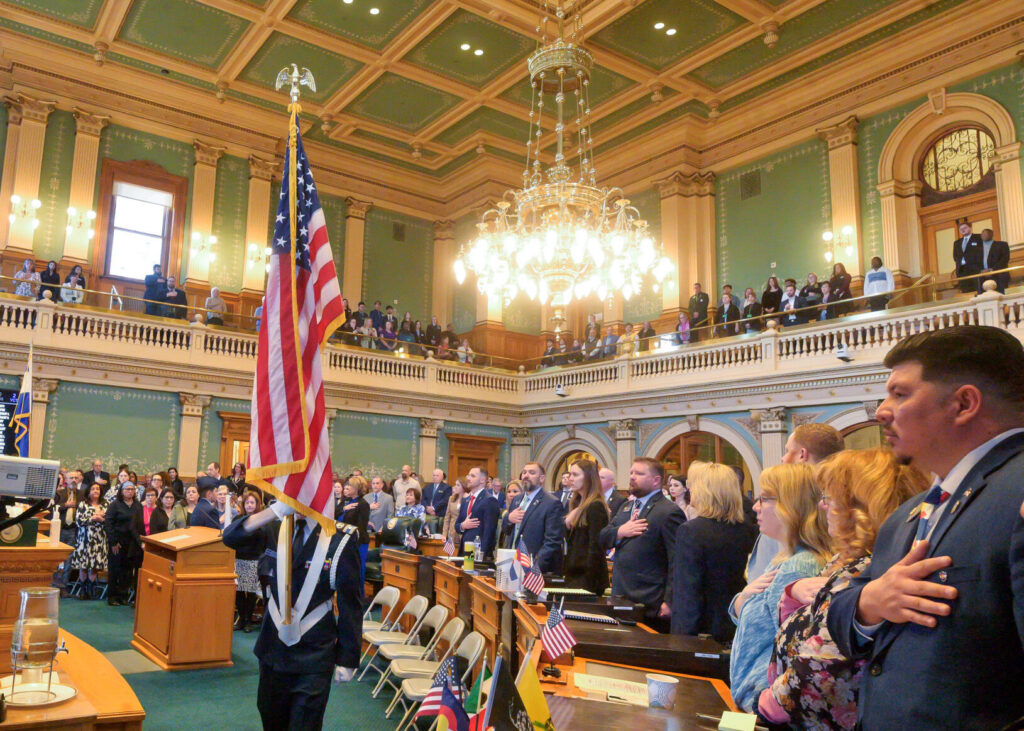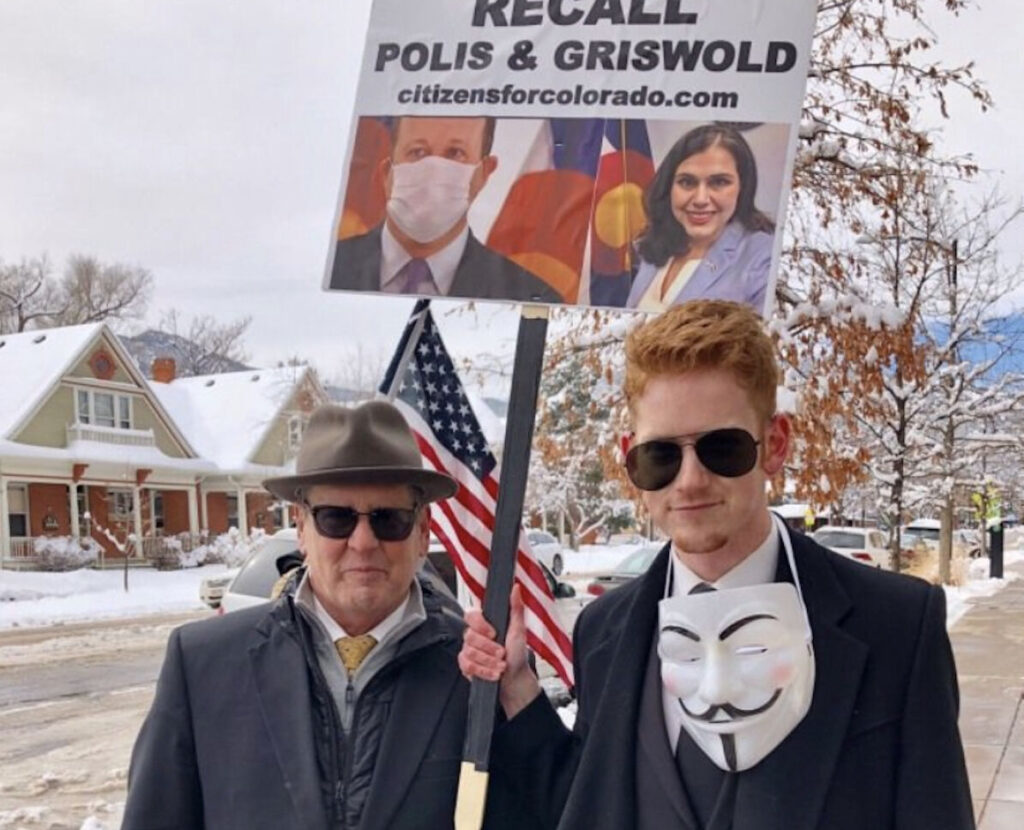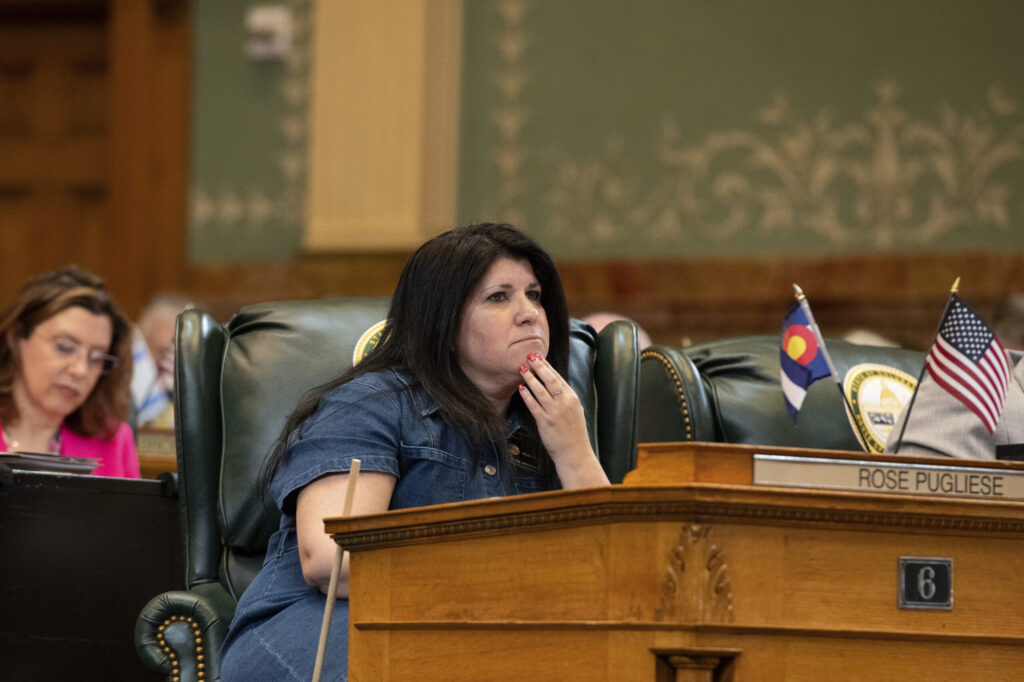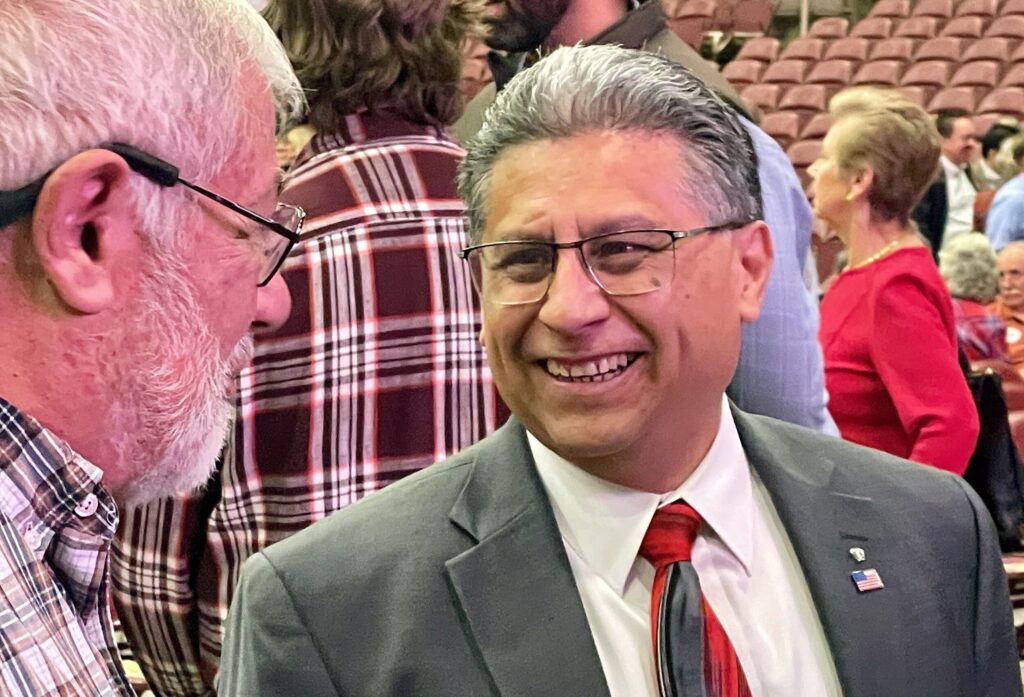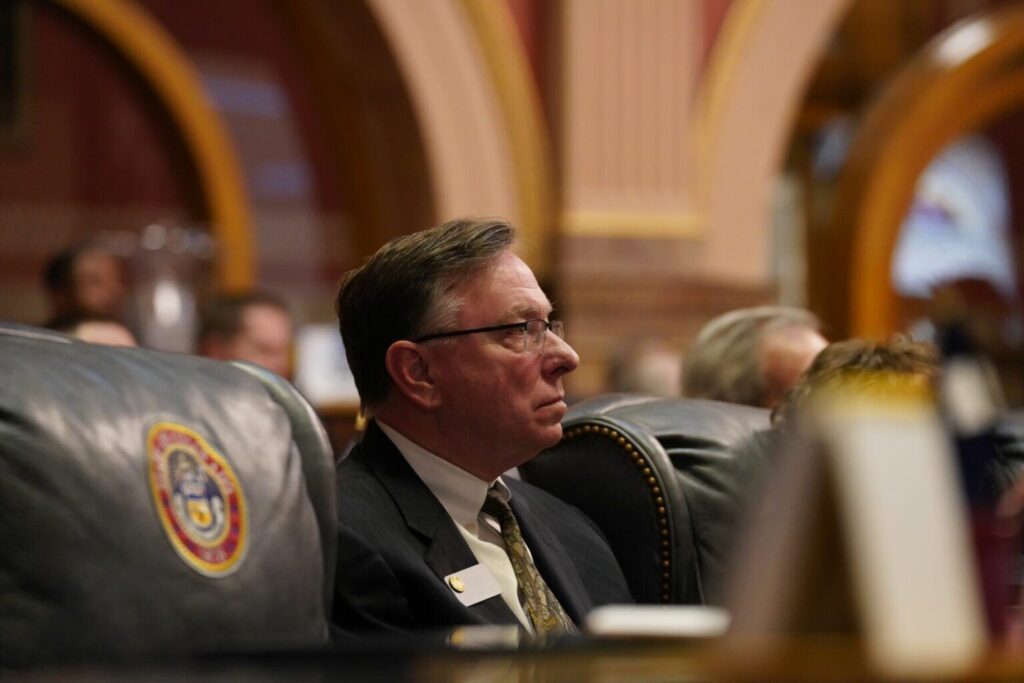Colorado Springs legislative candidates talk crime, affordability at community forum
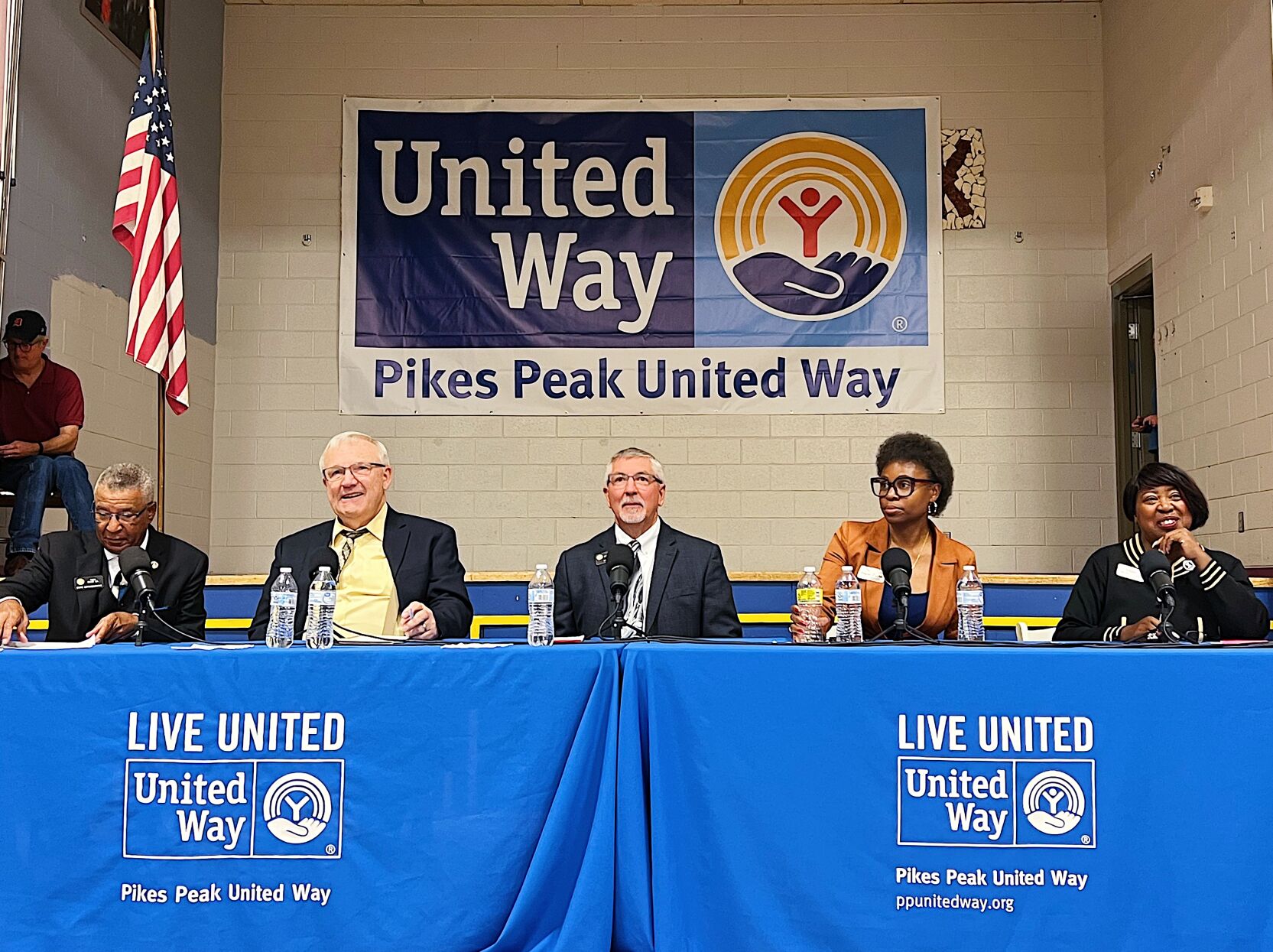
Less than one month before the election, candidates for Colorado’s Senate District 11 and House District 17 made their case to constituents during a legislative forum Tuesday night.
Hosted by Pikes Peak United Way, state Senate candidates Tony Exum, Dennis Hisey and Daryl Kuiper and state House candidates Rachel Stovall and Regina English answered community questions about crime, affordability and more in front of an audience of several dozen constituents inside of the former Pikes Peak Elementary School building.
The race for Senate District 11 is one of the most high-profile in the state, pitting two sitting lawmakers against each other: Democratic state Rep. Exum, who is term-limited in the House, and Republican state Sen. Hisey, who was recently drawn out of his former District 2. The pair are also facing Libertarian candidate Kuiper, a teacher and small business owner.
After last year’s redistricting, Senate District 11 is among the most politically competitive districts, with the Independent Redistricting Commission estimating only a 2.4% Democratic advantage and voter registration data from September showing fewer than 1,600 voters separating the Democrat and Republican constituencies.
Currently represented by Democratic Sen. Pete Lee, the results of the Senate District 11 election could help determine whether Democrats maintain control of the state Senate next year.
Tuesday’s forum mostly consisted of Exum and Hisey listing their respective legislative achievements in front of the polite and silent crowd, with no debate or responses between candidates. Hisey emphasized the need to tackle Colorado Springs’s rising crime and cost of living as his top priorities.
“We cannot continue down this path,” Hisey said. “Colorado is outpacing the national average in crime, in the cost of living. Being No. 1 in these categories is not something that has to be the new normal. Let’s bring some balance back to the Colorado legislature.”
Hisey called for increasing manufactured housing to help Coloradans afford homes and decreasing the workload of law enforcement so they can focus on serious crimes. Hisey also suggested the state lean on faith-based organizations and nonprofit partners to support Coloradans suffering from homelessness and mental health issues, saying government isn’t the only solution.
For these issues, Exum recommended expanding affordable housing tax credits, implementing a housing-first solution for homeless residents, increasing law enforcement budgets and holding law enforcement accountable for malpractice to improve the relationship between police and their communities.
“I’ve learned, during my service of the people of Colorado Springs, it takes hard work, a caring heart and dedication to helping people,” Exum said. “It’s been an honor to serve this community so the past eight years and, if the voters say so, maybe I’ll get a chance to do more.”
Libertarian Kuiper described himself as representing new ideas and approaches, calling for smaller government, more personal responsibility and equitable education. He generally favored community responses to the issues residents raised, calling on individual neighborhoods to band together to improve public safety, mental health and homelessness.
For the House candidates, though they suggested different strategies, both Stovall and English spoke of the need to raise education funding, improve access to the state’s mental health resources, increase Colorado Springs’s housing supply and collaborate with cities and local nonprofits to address homelessness.
The candidates’ views diverged regarding public safety, with Democrat English arguing the state should focus on addressing the root causes of crime by improving the quality of living, and Republican Stovall saying Colorado Springs needs to hire more police officers to reduce crime.
House District 17, currently represented by term-limited Exum, is considered less competitive than Senate District 11, with the Independent Redistricting Commission estimating a 12.8% Democratic advantage. There are over 3,400 more registered Democrat voters than Republicans, but well over 20,000 unaffiliated voters that easily fill the gap.




